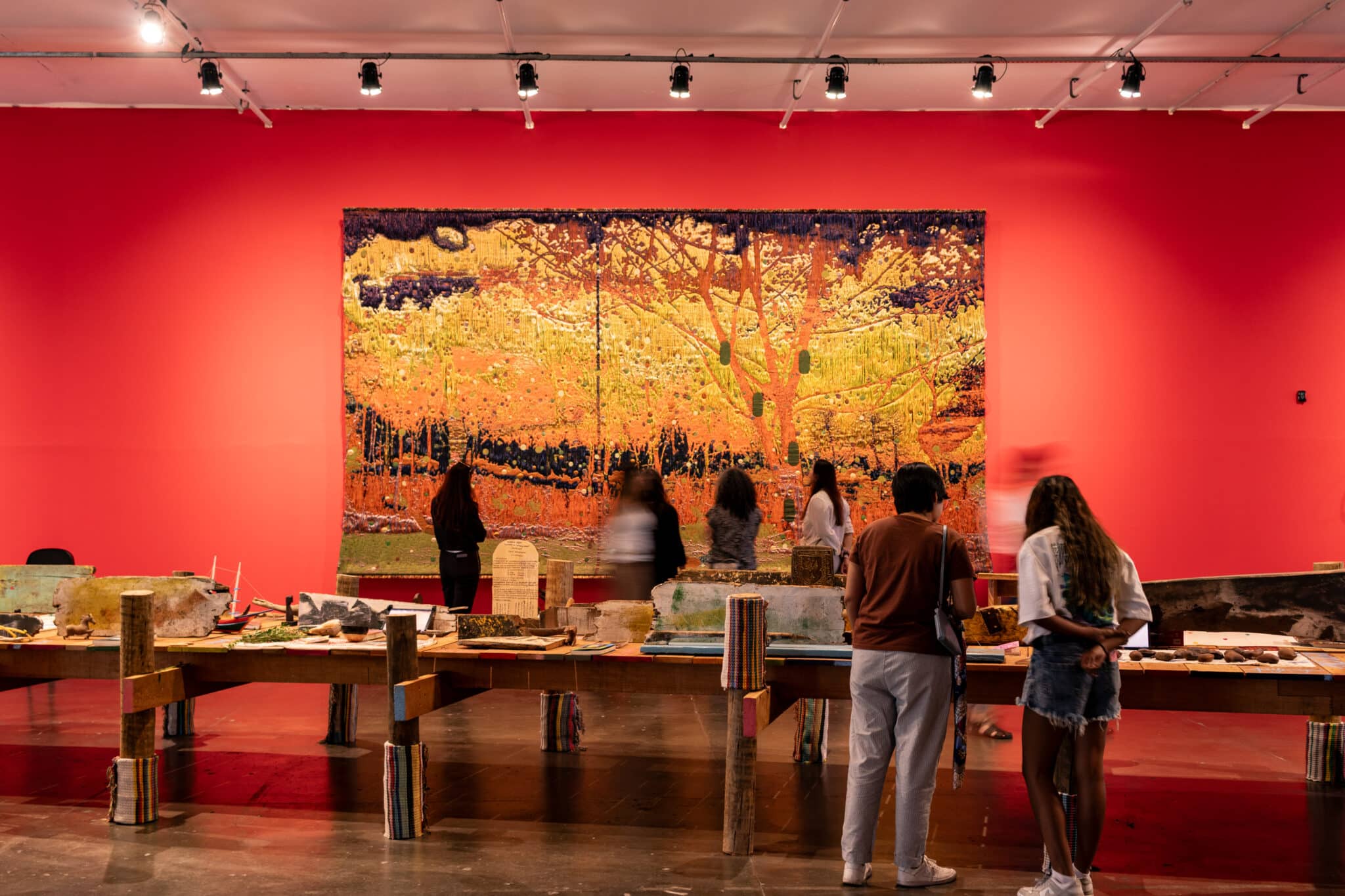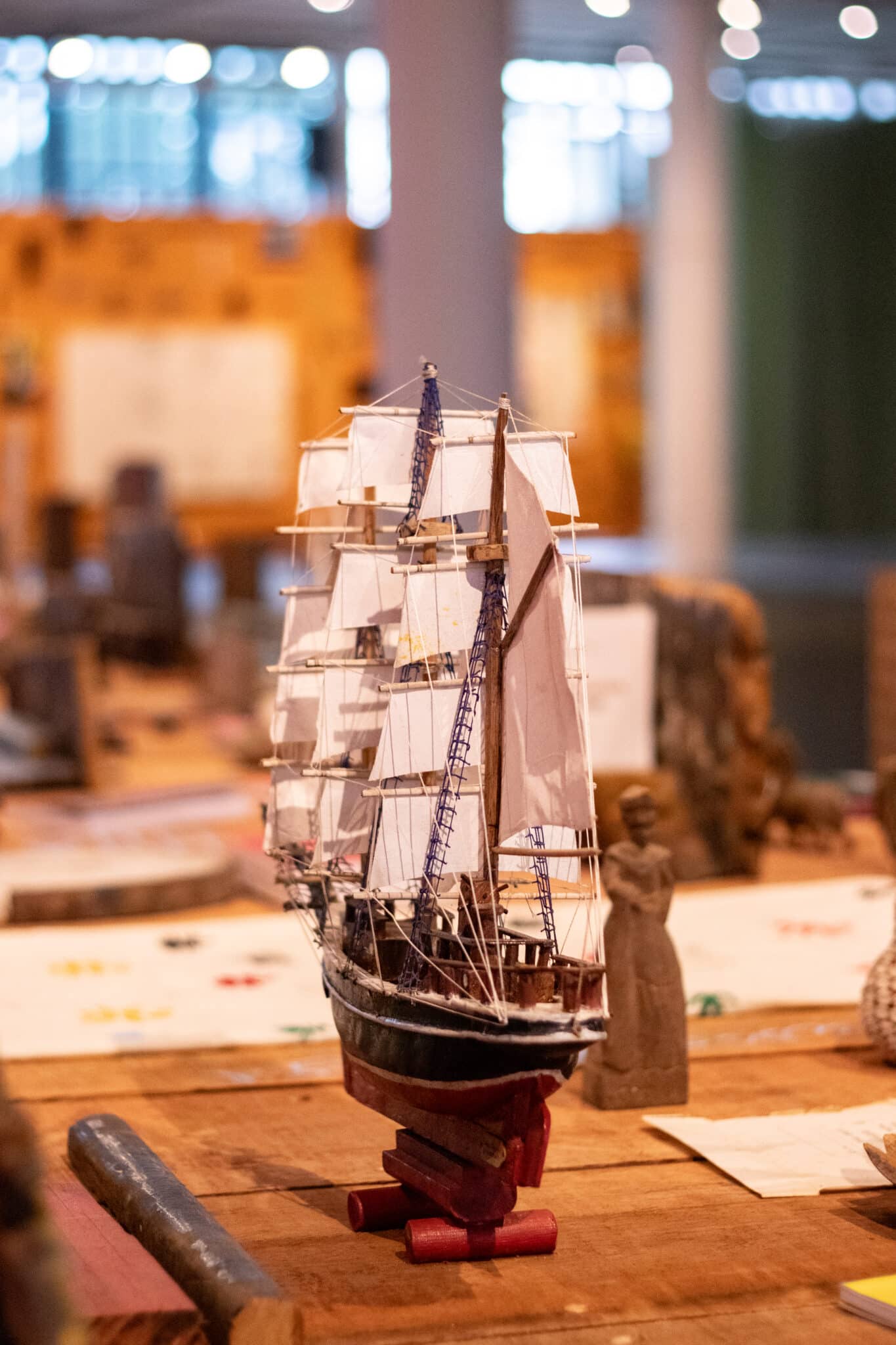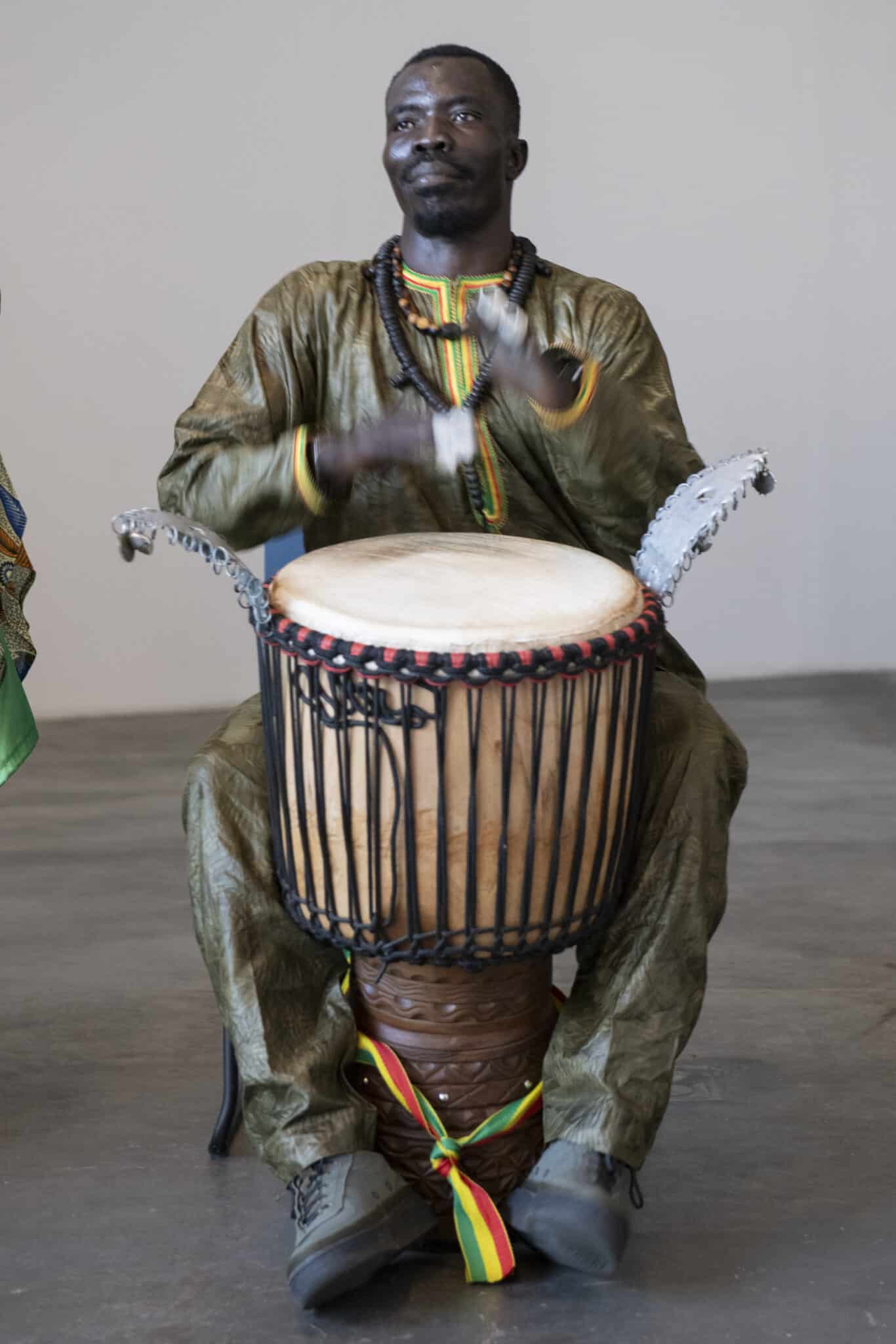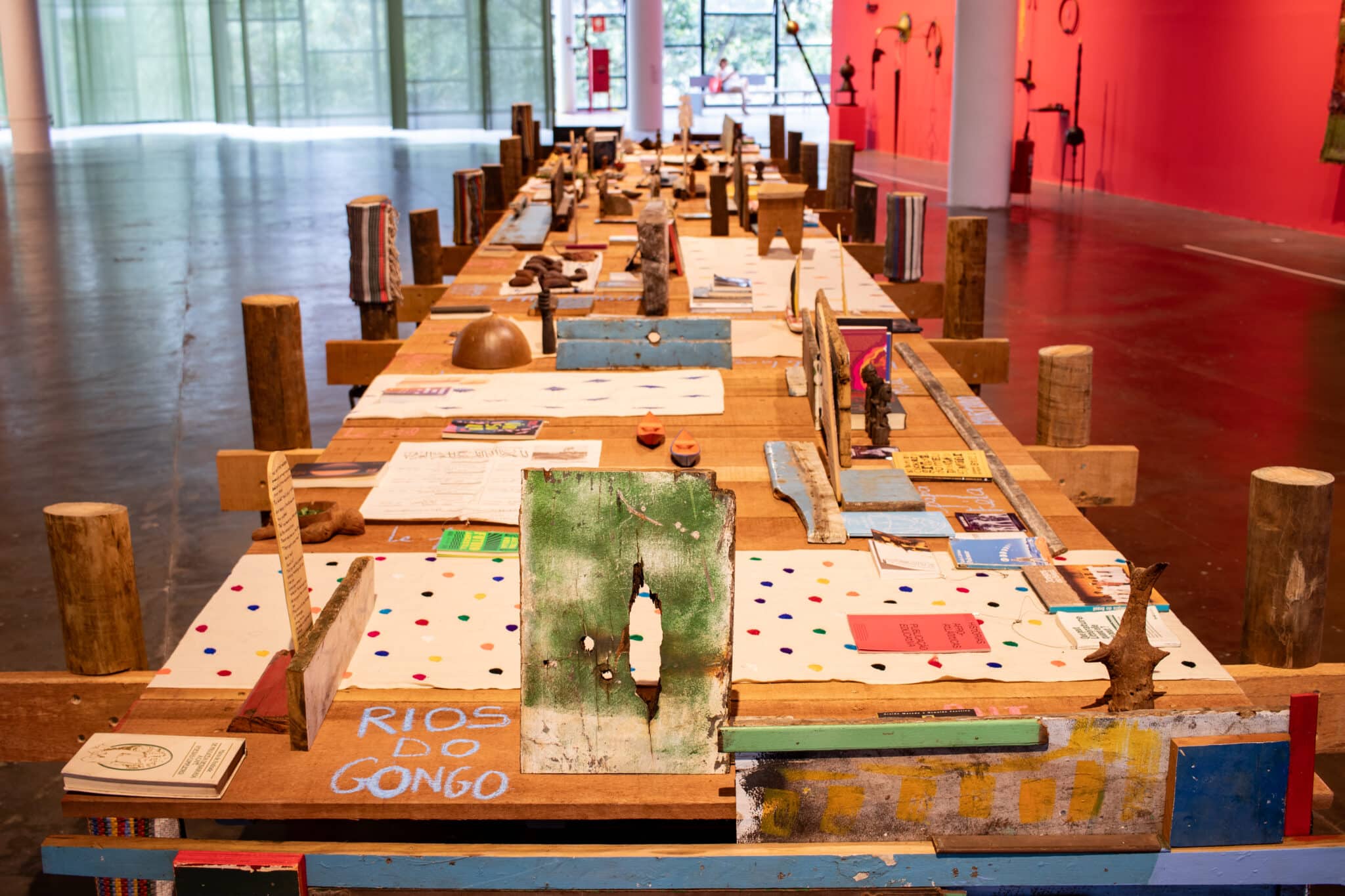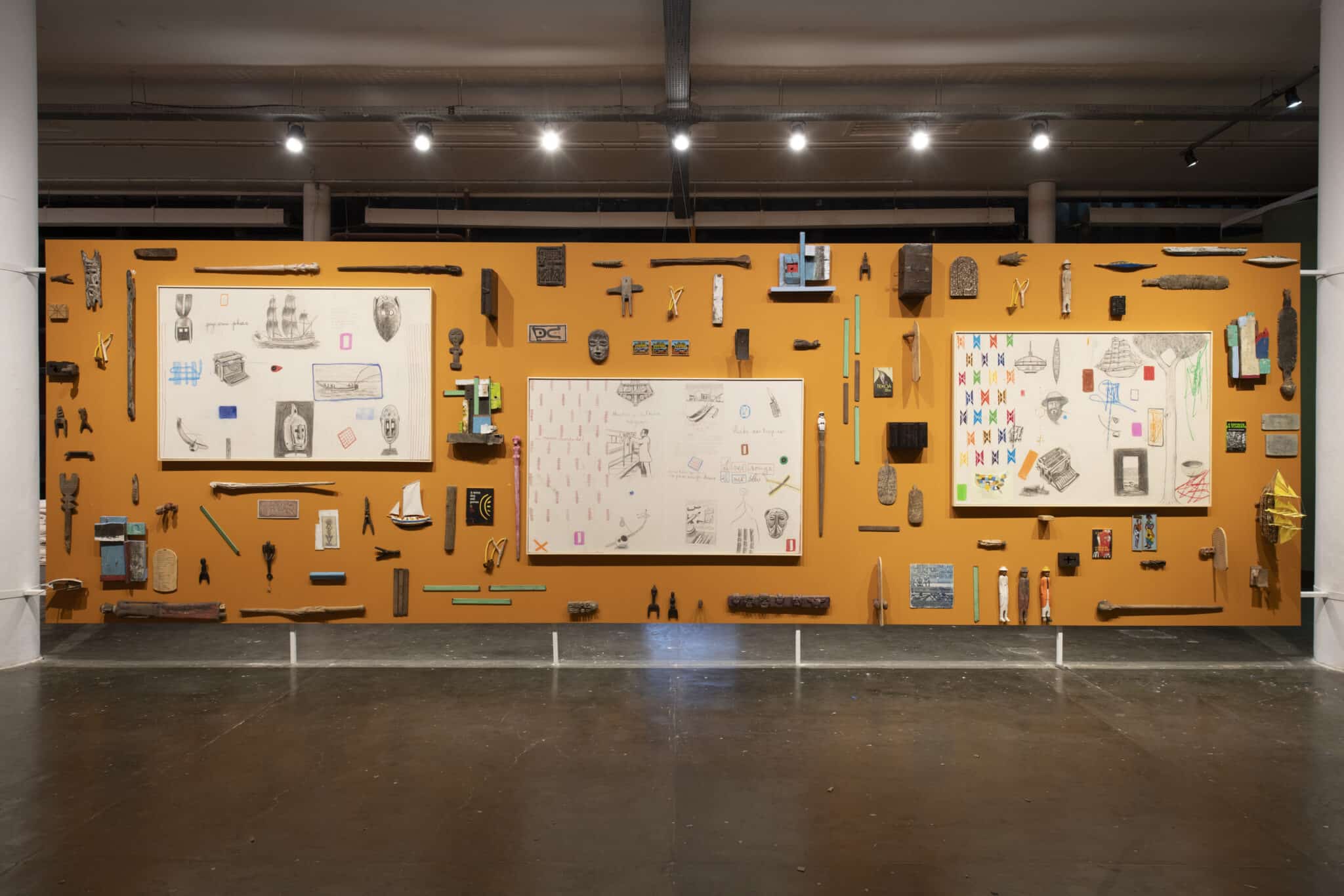In 2023, he was contacted by a legal expertise organisation to document the impact of international fishing on Senegal’s fishing community. Small-scale fishing faces overwhelming competition from industrial fishing, overexploitation of resources and environmental degradation.
For the 36th São Paulo Biennial – from 6 September 2025 to 11 January 2026 – he is repeating this working process: extending perspectives across the Atlantic in order to question the common struggles that may exist between the realities of Senegal and Brazil, Africa and South America. By looking at contemporary issues that involve both environmental and cultural emergencies, it is also a way of bringing together narratives and forms on the historical links that exist between Africa, the Caribbean and the Americas.
The aim is to blend the visual language that inhabits the Senegalese and Brazilian coastlines and to offer a cross-cutting narrative that reveals common struggles.
The works presented:
. Wood and multimedia installation (the pontoon)
In collaboration with Boris Raux, one of the members of The School of Mutants, they designed a pontoon using fragments of wood from canoes recovered from the coastline. Open to visitors as a walkway inviting contemplation, the pontoon is dotted with objects, petrol cans, rope and other found items, arranged like a battalion and reworked by hand.
. Paintings
Alongside this installation, he presents paintings made from recycled materials: doors, window shutters, wood, loincloths, textiles, wood engravings, etc. These eclectic assemblages feature written texts and references to environmental issues. These architectural paintings evoke the precarious habitats and structures often found on the coastlines of both Senegal and Brazil, threatened by the constant rise in sea levels. This composition questions the habitability of the world in a situation of crisis, in threatened or even transitory spaces. Between poignant testimonies, recreational space and political stance, the aim is to reveal the political complexity and economic and social weight of an activity such as fishing, which is considered harmless and innocuous.
. Performance:
For the opening day of the biennial, he performed a piece linked to the work Salesman of Revolt, a performance project conceived in 2018 in Mumbai, India. He wandered through the exhibition spaces carrying stacks of books on his head, evoking the street vendors of Dakar who frequent public spaces and beaches. Although some of them are illiterate, the vendor-librarians extol the virtues of these important poetic and revolutionary works, distributing decades of literary and intellectual heritage as a form of peaceful activism.
This performance was an invitation to the audience to take ownership of this literary production and to disseminate it in turn…
How can the works of yesterday help us to deal with contemporary issues?
